It’s the last day of my summer vacation. It’s the last day run-paddle trip to Latta, where I’m about to trade “getting up early to beat the heat” to “getting up early to beat the bus traffic on Runnymede.”
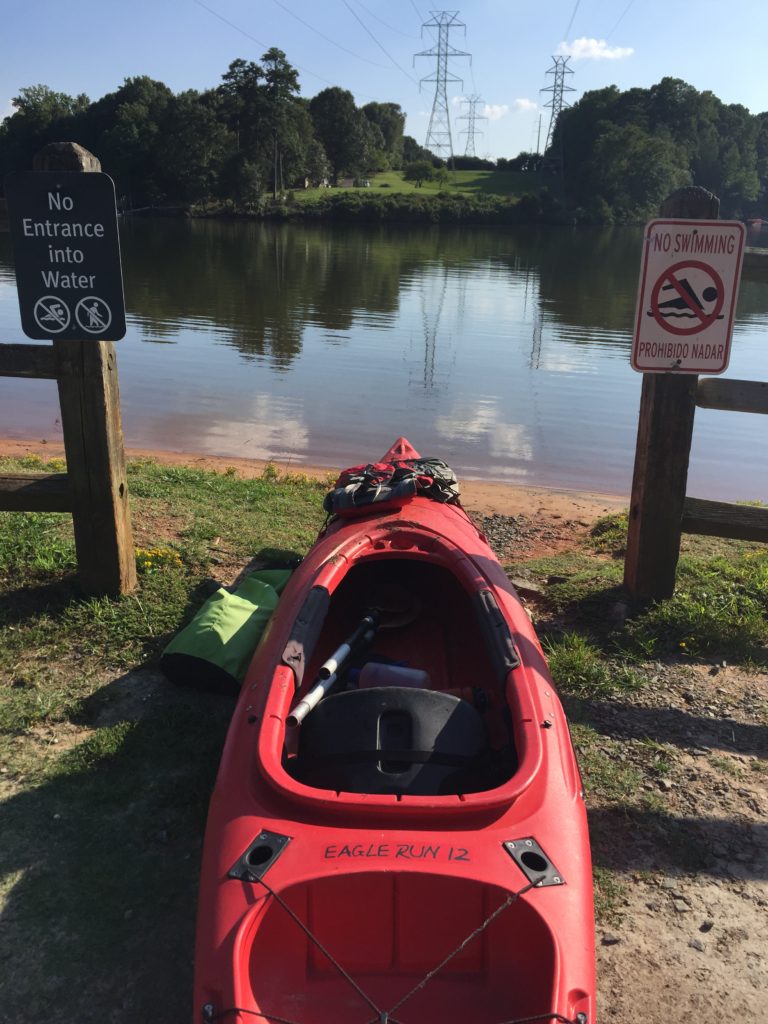
The launch point into Gar Creek
As the sun begins descent on the lake this event, it’s easy to muse on the nature of endings and beginnings, a lament on the halcyon days of summer gone by, a statement of purpose about the beginning of a new school year or the first post on the new blog.

This post is none of those. And it’s not because my running over the summer has consistently proven to me that it is the middle of the run where I need the most work. No, as I pull my kayak onto my own private beach on the lake and pull my hammock out of the dry sack, I find a folded paperback copy of the Yoga Sutras that has been sitting underneath towels and snacks all summer.

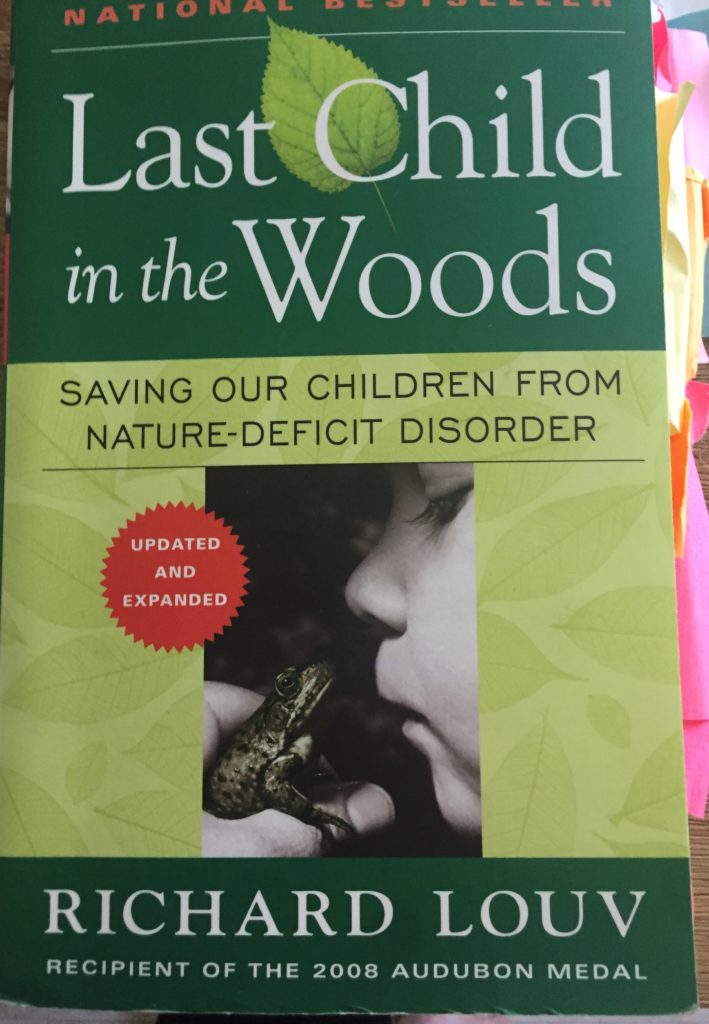
Richard Louv’s “Last Child in the Woods” evaluates how the evolution of modern society removes the interaction of nature from children and the harms that can cause.
The Intention of a New Beginning
It’s not the book I thought I’d be writing about today. This morning, I was starting to rebuild the blog. As I was sitting with Vince and Bella at their kitchen table, doodling notes for the first post of the new launch, I was already here at the lake. On an earlier paddle this summer, I had been in the middle of Richard Louv’s Last Child in the Woods. His criticisms of the dearth of free interaction with nature in education resonated with me in June, and it became an idea I came back to over and over this summer. I spent a lot of time this summer pondering how a teacher can make these changes in the context of a fairly rigid schedule. So, now that summer ends and school begins, it seemed natural to ponder the nature/school dichotomy. Here, I thought the musing would follow the roots and tendrils reaching for the water to drink, reaching branches to the sky, releasing oxygen, housing birds that swoop down to pick the fish out of the lake, a vast and interconnected ecosystem in which I lazily drip in and out of sleep.
But as the summer ends, school stands as a barrier to those networks. Time is restricted. There, we stay inside pre-packaged air for eight hours a day. There, we shift from room to cagey room, walls that block the connection, windows that don’t even open on the outside. There, we extol collaborative networks as a “21st century skill”, but also drive home the very modern condition of individualism through a cabal of testing, a mantra of self-definition, an increasing technological absorption.
So, as the summer dwindles to an end and the school year swells to a new beginning, I thought I’d find some clever way to bring it all together. I thought one last paddle would teach me how to bring some wonder of the lake, the fascination of the vast world into the walled universe of my classroom. As a nature-filled summer ended into the beginning of the culture-bound classroom, I thought I’d be building off a metaphor or roots and networks and eco-sytems, planning how to build the networks and connections with people at my school, hatching some grand, magnificent to sustain the idea through a new school year.
That’s a noble thought, I suppose. Beginnings are great for setting intentions, putting goals in place, building syllabi to be a road map for when the grind of mid-November makes treading water seem an admirable goal. “Build your castles in the air,” said Thoreau, and that seems an apt way to think about a beginning: dream first and build a foundation under it. I thought I’d be concerned with what those foundations are.
I’m not.
Endings, by contrast, seem a place for evaluation. How effective was an experience or experiment? Did the old blog serve its purpose? Did the summer live up to its potential? Are my teacher batteries recharged enough to go back into the trenches with new and fresh ideas, new and fresh enthusiasm, that will keep the spectre of boredom and futility from both me and my students? I thought I’d being trying to put a exclamation mark on the end of the summer, a rhetorical flourish to tie it up with a pretty bow and give it meaning that would propel gung-ho toward greatness into the next phase of time I’ll enter when I awake tomorrow.
I’m not.
Things Neither End or Begin
I lean back in the hammock and open the Sutras, falling open to 71. “How Things Neither End or Begin” I work it over, trying to wrap my head around the idea constructed in the meandering, obtuse language. As best as I can tell in the philosophy, starting and stopping are illusory brackets we put on experience. Things change. Things transform. But those transformations are always contingent on other changes, so pointing to “starting” and “stopping” points is always an arbitrary task.
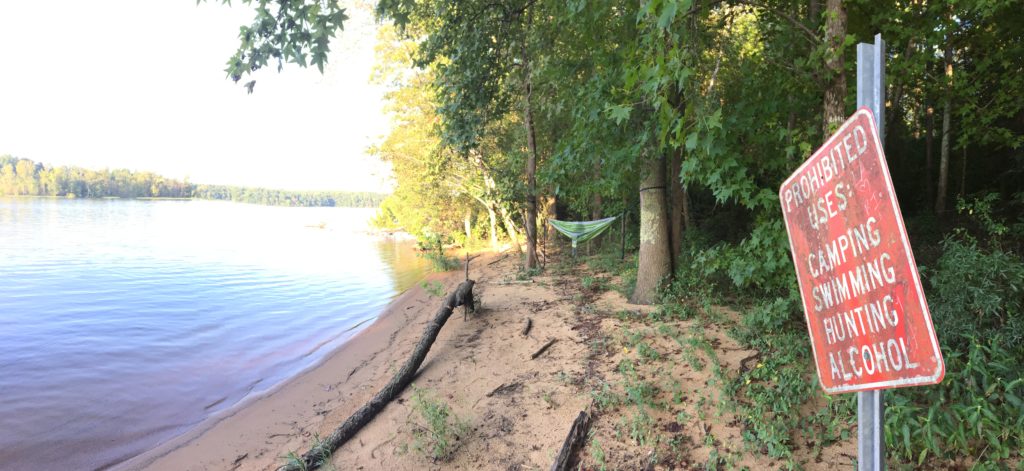
A lazy beach as the sunset nears
Earlier in the text, the metaphor of “seeds” arise. Whether consciously or unconsciously, we plant thoughts or intentions. In time, these seeds grow and blossom, pushing transformations, often without our understanding. By this line of thought, my school year may start and stop, but the nature of that transformation will hinge on seeds I’ve already planted–again, consciously or unconsciously–well before I put my little kayak in the lake and decided to think about it tonight.
In theory, the Sutra‘s meditation is to be more conscious of the seeds we plant. To cultivate that garden: To root out the seeds that cause strife, like ego-hubris or anger; To cultivate the seeds that lead to better outcomes for everyone, like patience and empathy; To nurture the wisdom to differentiate these seeds. In short, if you want to affect the outcome of this big transformations–such as the start of a new school year–you need to transform the mind first. And you need to do this well before the first day of school. After all, a school year is filled with chaos that we often only react to with our best intentions. The idea that the end of summer or the start of work is where the change occurs is an illusion.
So much musing on an illusion of a concept. I don’t know if I’m ready to follow that line to some pretty absurd conclusions. To be fair, some endings and beginnings have real meanings, like the time I had to speed paddle of the lake this summer to not get caught in the dark with locked gates at the park. And true, tomorrow will be the start of fewer opportunities to put my kayak in the water on a weekday afternoon. The days will get shorter. The weather will get colder. The opportunities for coming to the lake to run and paddle and relax in the hammock will become more sparse for the next few months. None of these are manifested by my thoughts. No amount of concentrated mind will remove the facticity of these changes.
Some endings and beginnings are concrete, like opening a door and walking from one room to another. But some are more fluid, like the ambiguous space between sleeping and waking. And despite the fact that the start of school is a major shift in many people’s lives, it is one of these more flexible transitions. I may want to subvert harmful educational paradigms in my classroom–making writing more meaningful, making the learning experience full of wonder so that the classroom becomes a liberation from the cave, not just a decorated anteroom–but I don’t have to have all the answers of how that will be done now that summer is over and school has started. I will build syllabi on paper as an intention in my class, but as it comes into the reality of my students, it will hopefully grow and modify with them. And the best measure of my own success may not be how well they score on a test at the end of the year, but on how I help them to cultivate their own seeds.
Moreover, some of my best ideas are never planned far in advance; they come in the crucible of necessity, not in the planning of forethought, fluid in their transitions. Perhaps they are the manifestation of seeds already planted–an article read or idea heard months before. When they’re good, I hope to share them with others, get feedback, and build something better one root at a time. And as I trade my ideas, either at school, or with you, dear reader (Hint” that’s your invitation to get engaged in this blog), hopefully those seeds will grow into something beautiful and vast to behold. That’s how life grows. That’s how an eco-system works.
Imposing the end/beginning concept on this beautiful evening could easily pervert the wonder of possibility. Looking back on the summer, I might wonder if I spent it well enough. Looking forward to the school year, I might worry that I haven’t prepared enough, or that I will be miserable when these days of felicity sweep into the past. But tonight, I’m not going to make a metaphor out of the fact that the sun is setting, that I will soon paddle back to shore, get in a car and go home.
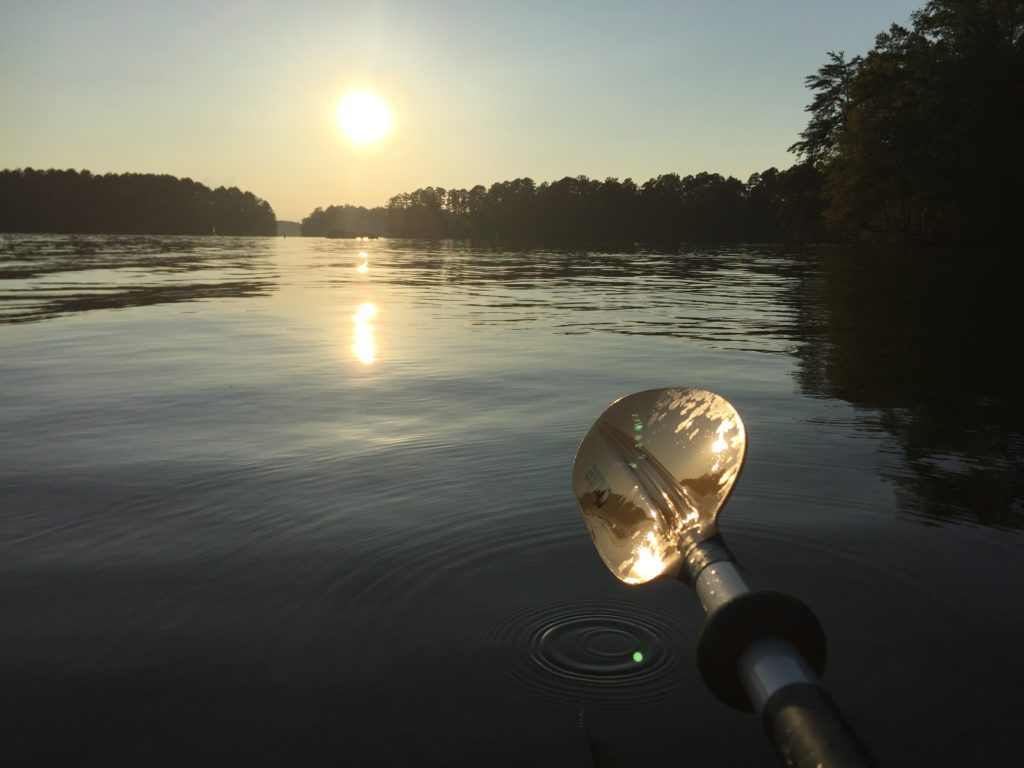
A look west over Mtn. Island Lake
Tonight, I’m content with the seeds I’ve planted over the summer, sitting open-eyed in the lake as the transitions in life come through. Instead of making a metaphor of the sunset, I’m perfectly at peace with the transient moment I’m in. The lake is bath-warm, and the birds flit from branch to branch. My Chacos float my toes out of the water, reclining me to a beautiful repose. In the distance, a fish flips above the surface, breaking the surface, then returning to silence.




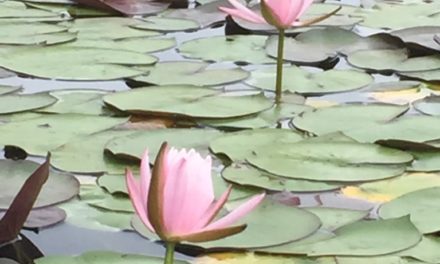
Recent Comments